Among the most innovative technologies of the contemporary era is artificial intelligence. It helps companies worldwide by optimizing resource use and boosting efficiency, but how is artificial intelligence used in logistics?
AI in logistics and transportation has provided a wide range of advantages to companies open to embracing cutting-edge technology.
Artificial Intelligence has revolutionized supply and demand chain management and logistical operations. In fact, based on a McKinsey assessment, AI is expected to surpass humans in repetitive but crucial jobs, leading to the creation of a whole new “logistics paradigm” by 2030. There is an increasing demand for solutions to advance logistics technology due to the unanticipated issues facing the logistics industry today.
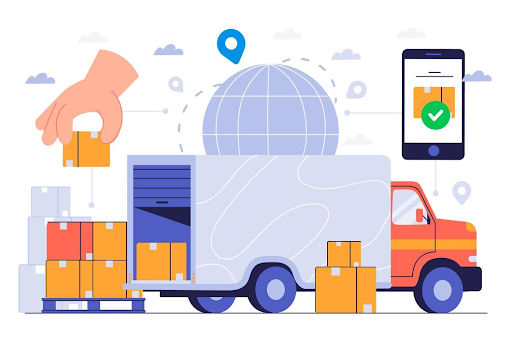
What Effects Does AI Have on the Logistics Sector?
Due to shifting customer expectations, the digitalization of procedures has become essential for efficient logistical operations. From locating the raw material to delivering the finished product, machine intelligence or AI-driven supply chain management can close the gaps and speed up error-free supply chain management. This is why AI and logistics are closely related.
The main thing is to understand how is artificial intelligence used in the logistics industry. Here are some examples:
Automating Manual Tasks
AI can automate repetitive and mundane workflows in transportation management, warehouse operations, order processing and more:
- Robotic process automation (RPA) can extract data from documents and systems to accelerate order processing and billing.
- Voice, image, and video recognition reduce errors in warehouse picking, packing and inventory audits. Workers can receive hands-free direction via AI assist.
- Chatbots and virtual assistants create self-service options for tracking deliveries without agent assistance.
Providing Real-Time Visibility
AI analyzes data from sensors, connected devices, cameras, equipment, vehicles and assets to deliver real-time visibility and alerts across the supply chain:
- Shipment locations can be monitored via GPS tracking, and estimated delivery times can be updated based on traffic data.
- Inventory automation solutions use computer vision and sensors so companies can view availability across all their warehouses.
- Machine learning detects anomalies and risks of delays/disruptions early for rapid response.
Optimizing Logistics Planning
Logistics and AI allow you to crunch big data on customers, demand, routes, weather and traffic to optimize daily operational decisions:
- Demand forecasting AI considers internal data and external datasets and detects patterns to predict optimal inventory volumes and placement.
- Intelligent orders promise to commit only to delivery dates and times they can fulfil based on constraints.
- Route optimization AI plots optimal delivery sequences and assigns appropriate vehicles/drivers and updates based on real-time conditions.
- Smart rebalancing algorithms for vehicle sharing ensure assets are redistributed based on real-time usage patterns.
Enabling Predictive Logistics
Data-driven AI models unlock predictive logistics capabilities:
- Predictive analytics for strategic planning provide insights on future demand shifts, infrastructure needs, equipment purchases, etc.
- Predictive maintenance leverages IoT sensors and machine learning to detect potential equipment failures before they occur and alert service teams.
- Recommendation algorithms suggest optimal carriers, shipping modes, packaging, and transport routes tailored for every shipment to meet customer expectations, reduce damages/delays and control costs.
Knowing how AI is used in logistics will help you develop a business that will bring a stable income. In addition, it will be easier for you to expand this business and enter a new market.
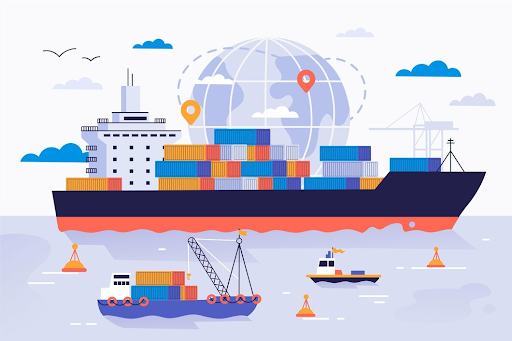
Key Use Cases: How Top Companies Apply AI in Logistics
Industry leaders are already using AI to transform their logistics operations:
Machine Learning Optimizes Amazon’s Extremely Fast Deliveries
With nearly 1.6 million employees globally, Amazon ships millions of packages per day to meet customer expectations for fast, free delivery. Machine learning algorithms help optimize each step across their logistics network – forecasting demand, aggregating orders dynamically for consolidated shipment, optimizing routing and packaging, fine-tuning warehouse workflows and automating tracking/status updates to customers. This allows them to achieve up to 90% on-time delivery rates during peak periods like Prime Day.
UPS Uses AI to Plan Its Delivery Routes
UPS leverages machine learning to map optimal routing and scheduling for its 125,000-vehicle fleet. The routing algorithms analyze traffic patterns, weather data, transportation infrastructure, historical delivery data, and more to create a sequence that minimizes mileage and avoids left turns that delay on-time performance. UPS also assigns drivers to routes based on available hours of service and skill level. The role of artificial intelligence in logistics in this company is to save UPS over 10 million gallons of fuel each year.
FedEx Applies Predictive Analytics to Anticipate Customer Needs Proactively
FedEx SupplyChain, the logistics, distribution and e-commerce arm of FedEx Corp, applies predictive analytics to gain deep visibility on the state of its operations and apply prescriptive recommendations. Their artificial intelligence logistics transportation ingests shipping data, weather forecasts, local events calendars, and retail promotions data to anticipate needs. This allows them to proactively rebalance warehouse inventory levels, alert customers to potential shipment delays before they happen, provide guidance on optimal inventory stocking levels during demand surges and recommend ideal modes of fulfilment.
Implementing AI in Logistics: Challenges to Consider
While AI innovation brings tremendous value, integrating these technologies requires thoughtful change management and planning:
- Assembling high-quality structured data is essential for accurate AI decision-making but can demand complex integrations across fragmented IT environments.
- Legacy warehouses may require significant sensor retrofitting, network upgrades and edge computing infrastructure to support IoT analytics.
- Organizations need analytical talent and observable machine learning ops (MLOps) to govern ongoing model monitoring, retraining and improvement.
- AI coaches and co-bots require cultural adoption. Employees may resist physical collaboration with robots or feedback driven by algorithms.
- Businesses must ensure AI recommendations align with existing services and SLAs promised to customers.
- Ethical AI practices demand transparency, bias evaluation and responsible automation to avoid harmful workforce impacts.
Artificial Intelligence in Logistics: Vast Potential
Leveraging AI’s potential across linked global supply chains is still in its infancy. Companies are rapidly adopting artificial intelligence logistics to gain a competitive edge in the burgeoning sector.
According to IDC, by 2025, more than half of the biggest manufacturers will utilize AI-powered logistics orchestration tools to maximize omnichannel fulfilment, dynamic delivery, and smart warehousing.
In the future, a greater number of developing technologies will be implemented in the real world, such as drones, autonomous trucks, and robots, which AI will make possible in the background. To fully use artificial intelligence in logistics, one must start constructing the internal competencies and technological infrastructure immediately.
Those who can solve today’s problems and conceive of tomorrow’s more logistics artificial intelligence will emerge victorious.
Conclusion
A smart way to enhance your supply chain is to embrace new technology.
What is the role of artificial intelligence in logistics? As you can see, supply chain and logistics have a lot of applications for artificial intelligence. Businesses are integrating this potent technology into their daily operations all across the globe. Numerous crucial procedures are sped up and made simpler with the aid of artificial intelligence. Routine activities that might normally take a long time may be automated to increase accuracy and efficiency while lowering the possibility of human mistakes. Consequently, the use of logistics and artificial intelligence may save costs and boost client satisfaction.

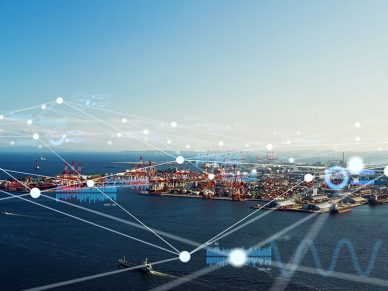

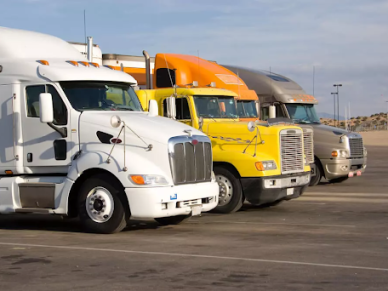
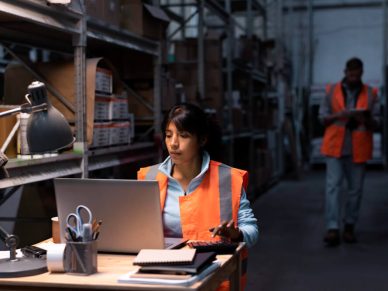

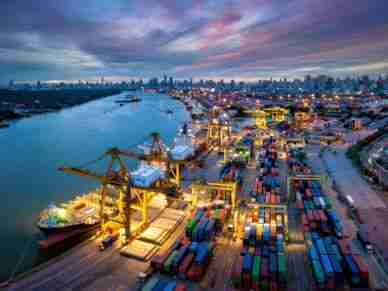






Leave a Reply